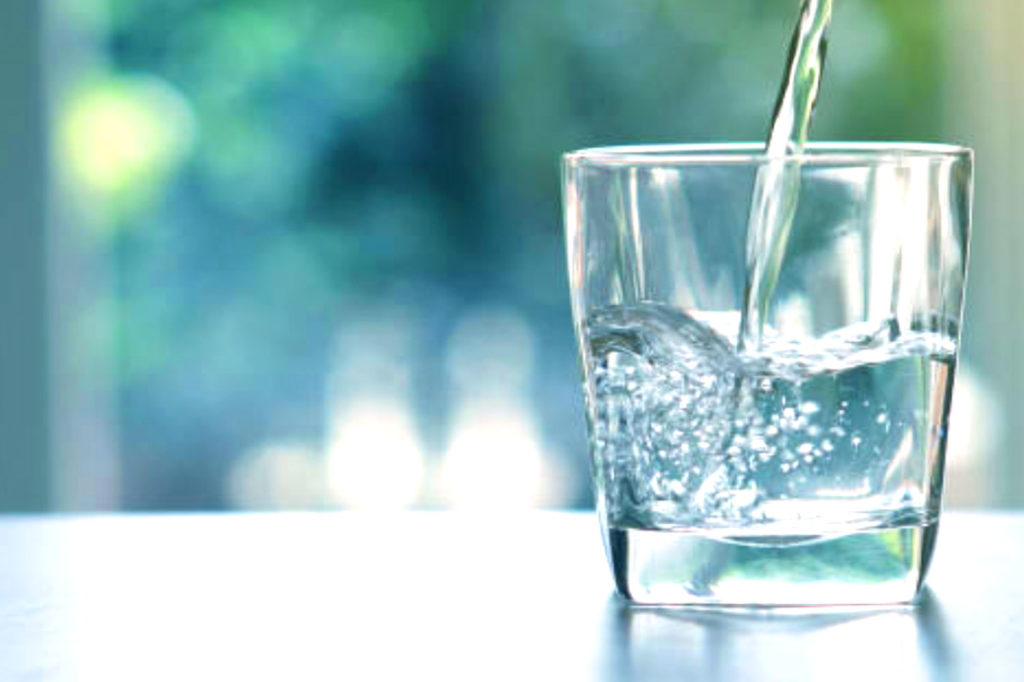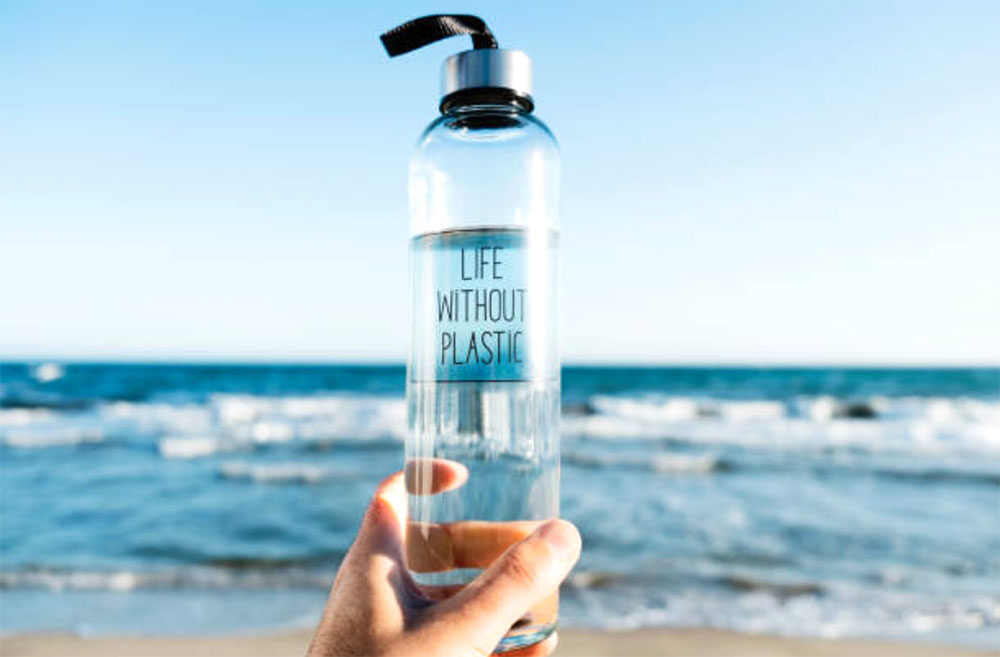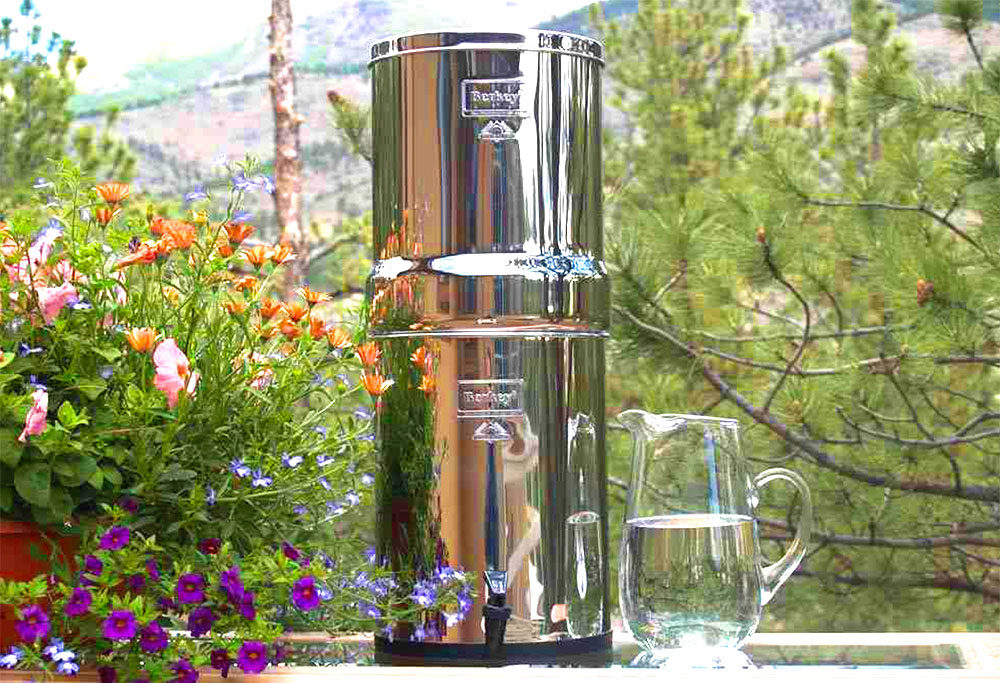
The Importance of Pure Water and Hydration
Do you want clear, supple skin and luxurious hair? How about maximized physical performance, less fatigue and optimum brain function? Would you like to help prevent kidney stones, reduce blood pressure, lessen aches and pains and even help prevent hangovers?
Well step right up, folks! I’m not talking about the latest in hot nootropics, supplementation or the ‘Limitless’ pill. It’s much simpler than that. I’m talking about HYDRATION.
Ok, so here are the stats. Water makes up approximately:
- 60% of the body
- 70% of the brain
- 80% of the blood
That seems pretty important, no?
Most people are chronically dehydrated, meaning that body systems are not working optimally. It only takes fluid loss of less than 1.5% to impair focus, concentration and mood, as well as lead to increased instances of headaches. A loss of less than 2% of the body’s water can diminish physical performance, and lead to weakness, fatigue, anxiety and poor memory.
This small percentage of water loss can occur during everyday daily activities, so it’s important to stay aware of our hydration status. Longer term, chronic dehydration can lead to more severe symptoms and conditions like blood pressure changes, digestive issues (which can lead to a whole host of other dis-ease), infections, kidney problems, skin conditions, etc.

How Much Water?
We Are All Special Snowflakes
Everyone has unique requirements when it comes to water intake. It depends on factors like occupation, lifestyle, activity level, what time of year it is, what climate you live in, your current state of health, body size and stage in life. What is your diet like? People who eat more fresh fruits and vegetables will be more hydrated and need less water intake. Those with high protein diets will need more water.
Generally (and i don’t like ‘generally’), adults need 2-3 litres of water per day to replenish the daily loss of fluids, but the variables mentioned above determine less or more, based on the person. Also, if you have caffeinated or alcoholic drinks, they deplete your hydration status and you need to re-replenish with water or another hydrating drink.
IMPORTANT: If you feel thirsty, you’re on the brink. A dry mouth is the last outward sign that your body gives to tell you to get hydrated. So pay attention! Our thirst reflex can actually decrease if we ignore it enough.
Where Do You Get Your Water?
It is so important to get clean drinking water. The above stats tell how much of our bodies are made up of water, so what do we want the condition of our drinking water to be? The cleanest and best!
Unfortunately, our tap water is far from being clean. Agricultural runoff, including animal waste, chemicals and pesticides, toxic industrial runoff (including pharmaceuticals), landfill sludge, sewage, municipal waste and metals from old pipes all get routed right into our drinking water supply.
It does go through a process that is supposed to ‘sanitize’ it for safety. This entails adding chlorine to ‘purify’ it and sometimes fluoride (a neurotoxin) ‘for our teeth’.

So here is a round up of what you are putting into your body when you drink tap water:
The Good
Minerals & Electrolytes
- These play an important role in everything from nerve and muscle function to fluid balance, brain health, heart health and bone strength.
- Fruits, vegetables, beans, nut and seeds are great sources of minerals and electrolytes.
The Bad
Chlorine
- Chlorine is added to kill bacteria, which it does. The problem is that it kills bad AND good bacteria. We need the good bacteria in our bodies, and chlorine messes with the delicate balance of our gut’s microbiome, which affects our overall health.
- Chlorine ingestion has been linked to cardiovascular disease, high blood pressure, allergies, chronic fatigue, kidney conditions, bowel and bladder issues.
Fluoride
- Though it is said that fluoride is in the water for our oral health, many studies since the 1940s have concluded that ingesting fluoride is not an effective way to prevent tooth decay. Topical treatments like the ones you receive at the dentist can possibly be effective, but drinking fluoridated water for protection against tooth decay makes about as much sense as ingesting sunscreen to protect against a sunburn.
- Fluoride is a toxic chemical that negatively affects many body systems. In 2006, the National Academy of Sciences released a 500 page review of fluoride’s toxicity concluding that fluoride is an endocrine disruptor, affecting the bones, brain, thyroid gland, pineal gland, and blood sugar levels, and that it could be contributing to chronic health problems.
- Fluoride toxicity is cumulative. Healthy adult kidneys excrete 50-60% of the fluoride ingested each day and the rest accumulates in the body largely in the bones and pineal gland. Infants and children eliminate less fluoride from their kidneys and keep up to 80% in their bodies. A Harvard study has confirmed that fluoride reduces IQ levels, as it is toxic to the brain and nerve cells, linking to learning, memory and cognitive deficits. This has been backed up by 33 other studies from China, Japan, India and Mexico.
Heavy Metals
- Heavy metals such as lead, mercury, aluminum and cadmium are found in drinking water.
- Heavy metals do not get flushed out of the body, so they accumulate over time and often end up mostly in the brain.
- This accumulation leads to conditions like chronic fatigue, autoimmune disorders, neurological disorders (brain fog, depression, anxiety, dementia, Alzheimers), and insomnia.
Endocrine / Hormone Disrupting Chemicals
- Endocrine disrupters are chemical compounds that mimic hormones. They can either amplify or block the effects of naturally occurring hormones, impacting the reproductive, immune and nervous systems in the body.
- BPA, used in plastics and phthalates, a group of chemicals used as solvents, are examples of endocrine disrupters that are found in personal care products and in our water supply.
- The World Health Organization released a report in 2013 revealing that Infertility, ADHD, thyroid deficiencies and developmental effects on the nervous systems in children are health issues associated with these chemicals.
Drugs
- Medications end up going down the toilet through a patient’s urine or through people disposing of medications by flushing them.
- Water treatment does not get rid of pharmaceutical drugs. Anything from birth control, to epilepsy drugs, to blood pressure medication, to diabetes drugs, to antidepressants to anti-psychotics are found in our water supply.
- Aren’t we told to take antibiotics only when we really really need to so that we don’t create antibiotic-resistant superbugs? Oops.

What About Bottled Water?
- Sometimes bottled water is just tap water in a bottle, not actual spring water, in which case, ‘The Bad’ category for tap water applies to bottled water.
- Plastic bottles contain chemicals that leach into the water, causing all of the endocrine disrupting effects mentioned above.
- The creation and transportation of plastic bottles is a huge polluter. Sadly, most of the bottles end up in the oceans and in landfills, leaching their chemicals into the planet’s water and soil… and the cycle worsens.
Solutions for Clean Drinking Water
Short of having a pure spring in your backyard, here are some options for clean drinking water at home.

Berkey Water Filter
I have a Big Berkey Water Filter System in my kitchen and it’s a life changer. The system comes with Purification Elements and Berkey also offers optional fluoride filters (which I highly recommend). You just pour tap water into it and it filters out the bad stuff, maintaining the minerals. These counter-top systems are powerful enough to be used to filter water in remote places that don’t have potable drinking water.
I love the Berkey because it’s a freestanding unit that relies only on gravity. No other plugs or other power sources are necessary and there’s no plumbing installation. Also, no water is wasted. Some filtration systems (like reverse osmosis) waste a lot of water in order to filter water. Berkey also offers some smaller travel size options, sports bottles and even shower filters.
More info on Berkey here:
https://www.consciouswater.ca/ref/holistictara/
Reverse Osmosis Filter
These are handy because they are attached right under the sink and have their own little spigot on the counter.
They remove a number of contaminants, but unfortunately, they also remove most of the necessary and healthy minerals, so you have to remineralize the water.
Also, as mentioned above, the reverse osmosis process can waste more water than it filters (several gallons of water for every gallon filtered).
Pitcher Water Filters
These are cheap right off the bat, but you run into constantly replacing the filters, which adds up quickly and turns into high maintenance.
They do filter out some contaminants and chlorine, but not heavy metals, endocrine disruptors or fluoride. The verdict on this one is that it’s better than nothing, but there are definitely better options.
Under Counter Multi-Stage Filters
This will probably be my next level purchase some day. These systems are installed under the sink and don’t require any manual filling.
The water goes through 10-14 processes of filtration, including ultraviolet light, reverse osmosis, remineralization, homeopathic restructuring and coconut shell carbon filtration. The water comes out of a counter spigot tasting great.
There are many filter options for clean drinking water, at different price points. Do some research and see what’s best for your home. Stay hydrated!